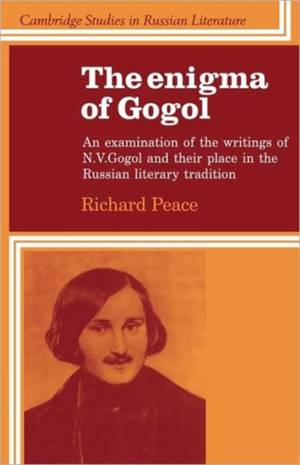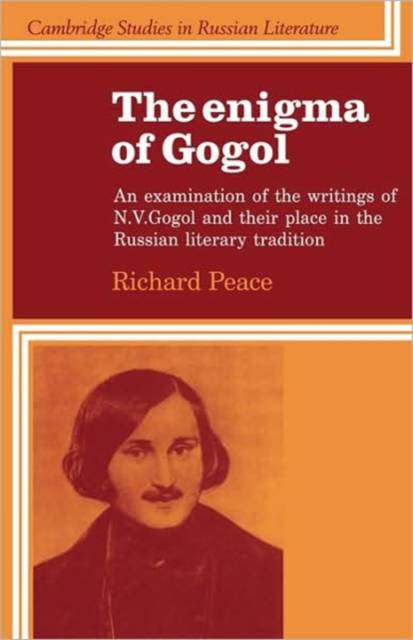
Je cadeautjes zeker op tijd in huis hebben voor de feestdagen? Kom langs in onze winkels en vind het perfecte geschenk!
- Afhalen na 1 uur in een winkel met voorraad
- Gratis thuislevering in België vanaf € 30
- Ruim aanbod met 7 miljoen producten
Je cadeautjes zeker op tijd in huis hebben voor de feestdagen? Kom langs in onze winkels en vind het perfecte geschenk!
- Afhalen na 1 uur in een winkel met voorraad
- Gratis thuislevering in België vanaf € 30
- Ruim aanbod met 7 miljoen producten
Zoeken
The Enigma of Gogol
An Examination of the Writings of N. V. Gogol and Their Place in the Russian Literary Tradition
Richard Peace
€ 73,95
+ 147 punten
Omschrijving
Gogol's place in Russian literature is unique. He is Russia's classic comic writer, yet the phrase 'laughter through tears', which has been applied to him, hints at darker and more tragic overtones. One of the most idiosyncratic of writers, his influence has nevertheless been profound. Appearing to shun psychological analysis, he is yet the father of the Russian psychological novel and originator (in his unfulfilled plans for Dead Souls) of the novel of spiritual regeneration brought to fruition by Tolstoy and Dostoevsky. A great innovator in his work for the theatre and widely hailed throughout the nineteenth century (and even today in the Soviet Union) as the exponent of a socially conscious literature championing the underdog, his work has been interpreted quite differently by the Formalist and many present-day Western critics who see the significance of his art residing in its manner, not its meaning. Surveying the complete oeuvre, Professor Peace argues that Gogol has, as a writer, close affinities with the Russian Middle Ages and that his ambiguous position in the great humanist tradition of nineteenth-century Russian literature springs from his attempts to come to terms with the cultural impact of Sentimentalism, and its later development Romanticism. Moreover, misunderstanding of Gogol has been further compounded by a contradiction in his work: on the one hand the striving for national significance and universality; on the other the treatment of art as a form of personal catharsis.
Specificaties
Betrokkenen
- Auteur(s):
- Uitgeverij:
Inhoud
- Aantal bladzijden:
- 356
- Taal:
- Engels
- Reeks:
Eigenschappen
- Productcode (EAN):
- 9780521110235
- Verschijningsdatum:
- 30/04/2009
- Uitvoering:
- Paperback
- Formaat:
- Trade paperback (VS)
- Afmetingen:
- 140 mm x 216 mm
- Gewicht:
- 449 g

Alleen bij Standaard Boekhandel
+ 147 punten op je klantenkaart van Standaard Boekhandel
Beoordelingen
We publiceren alleen reviews die voldoen aan de voorwaarden voor reviews. Bekijk onze voorwaarden voor reviews.









